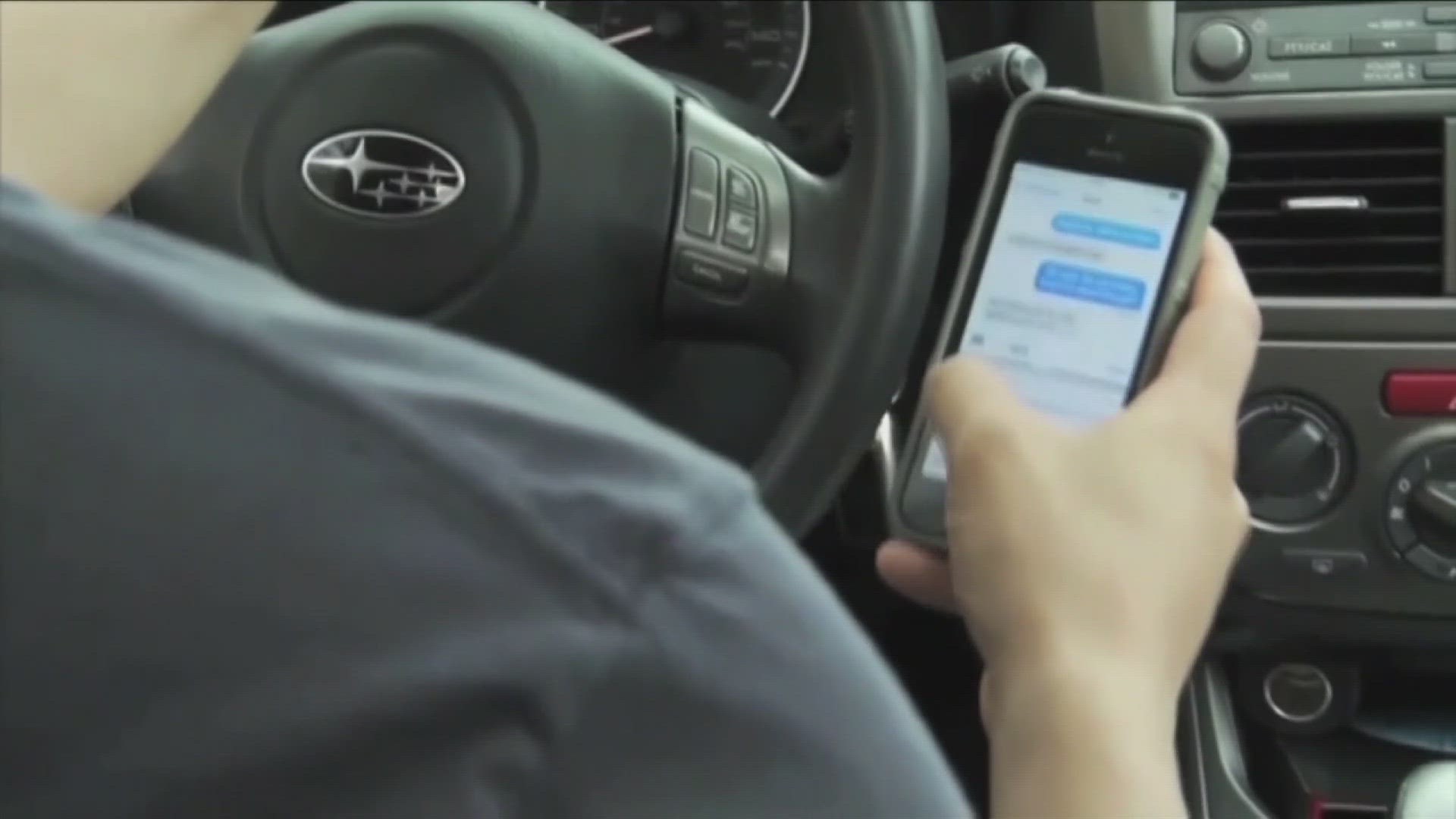TENNESSEE, USA —
Those in Tennessee will soon face a harsher penalty if they are caught texting and driving.
A law that will increase the number of points charged to the driving record of distracted drivers goes into effect on Jan. 1, 2024.
Senate Bill 0589, also called the Eddie Conrad Act, was named after a Middle-Tennessee businessman who was killed after being hit by a distracted driver in 2020. This got the attention of District 17 Senator Mark Pody.
"Nobody meant to hurt anybody. Nobody meant to kill anybody. But as a result of this accident, we looked at the laws, and there really wasn't much teeth in the law of texting and driving,” said Pody.
Larissa Thompson has a similar story. Her fiancé, Clifton Gibbs, was killed in Memphis in 2012 by a distracted driver. This inspired her to start the Collegiate Life Investment Foundation (CLIF) to raise awareness about distracted driving. She also emotionally, physically and financially helps victims and their families.
"I go out to companies, corporations, schools and talk strictly about distracted driving. We also have a program called VAN, Victims Assisted Network. We partner our victims with psychologists, grief counselors,” said Thompson.
According to the Tennessee Department of Safety and Homeland Security, over 50% of distracted drivers are 34 and under.
The new law will impact young drivers the most. People under the age of 18 will get seven points for a second offense. This would be enough points to have their licenses suspended for up to a year.
"We're getting more and more law enforcement that are really on board because it cuts down on the accidents that's happening," said Pody.
Anyone 18 or older will get four points for a first or second offense and five points for a third offense.
Adult distracted drivers can also face a Class C misdemeanor, with a fine of up to $50.
Thompson has been fighting for years for harsher penalties for distracted drivers. She called the new law a good step but hopes to see stricter laws for distracted adult drivers in the future.
"To think that if I'm on my phone one time, I might have to catch a ride to work or catch the bus or catch an Uber, that makes an impact," said Thompson.
Along with texting and driving, the new law also includes stricter punishments for holding, reading on or reaching for an electronic device while driving.

